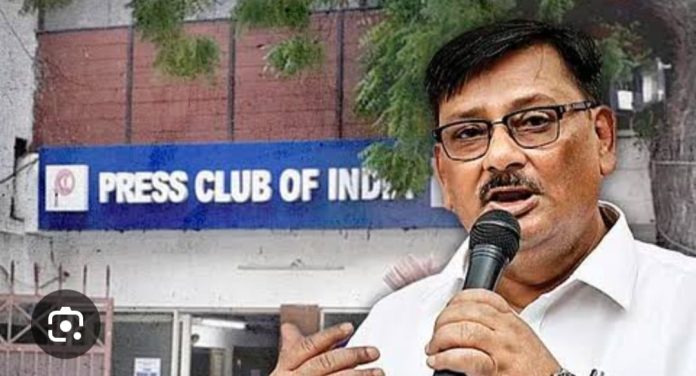– Mohd.Naushad Khan
The Press Club of India has submitted a memorandum to the Ministry of Electronics and Information Technology, raising alarms over the Digital Personal Data Protection Act, 2023 (DPDPA) and its possible harm to press freedom in India.
The memo, backed by journalists, unions, press clubs, and media rights groups, claims the Act violates Article 19(1)(a) and 19(1)(g) of the Indian Constitution. These protect free speech and the right to work in any profession.
Though the DPDPA was passed in August 2023 and opened for public input in January 2025, it has yet to be enforced. The memo says the law fails to exempt journalists, putting them at risk of penalties for gathering or reporting personal data—an essential part of their job.
It points out that vague terms like “Data Fiduciary,” “Data Processor,” and “Personal Data” may treat journalists as data handlers. A journalist naming someone in a story could be seen as a “data fiduciary” needing consent. Using spreadsheets might make them a “data processor.” Even publishing a photo that shows someone could trigger legal duties under the Act.
Sections 5 and 6 require detailed consent before using personal data. The memo says this is unworkable for journalists, especially during breaking events like riots, terror attacks, or corruption probes. It asks if reporters would need consent from everyone they cover—even when it’s in the public interest.
Section 10 allows the government to label organisations as “Significant Data Fiduciaries.” The memo warns this gives officials unchecked power to target large media houses. Section 17 exempts startups but not media organisations, which the memo says is unfair.
The memo also raises alarm over Sections 28 and 36. These allow the Data Protection Board and the government to access any data or documents, risking exposure of whistleblowers and sources—key to investigative journalism.
Another concern is the weakening of the Right to Information (RTI) Act. Section 44(3) of the DPDPA changes Section 8(1)(j) of the RTI Act. This removed a rule that let journalists access personal data for public interest. The memo says this hurts transparency and accountability.
The signatories demand firm exemptions for journalists and media groups in the DPDPA rules. They ask for protection of sources, restoration of the original RTI rule, and removal of vague clauses. Without these, the memo says, the Act may become a tool for state overreach and could damage free journalism in India.




